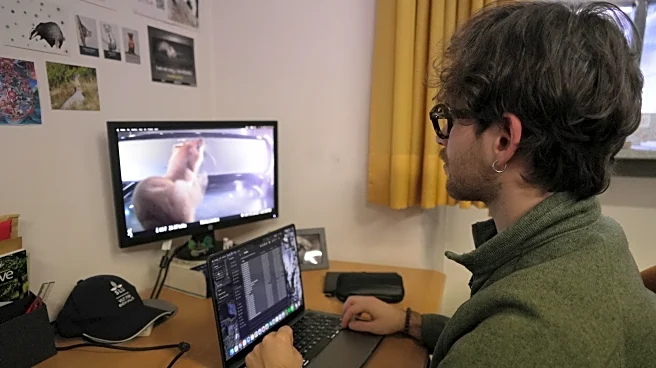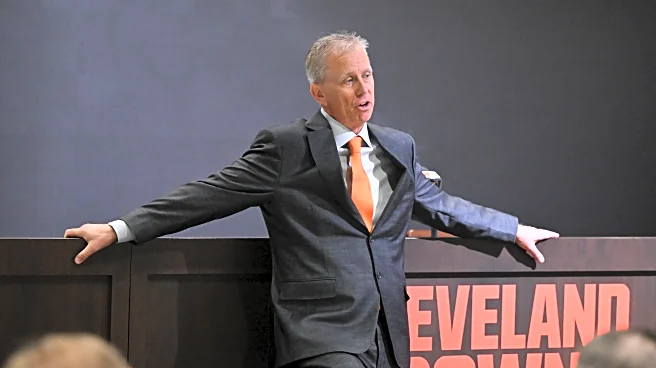What's Happening?
Hannah Ritchie, a data scientist, has released a new book titled 'Clearing the Air: A hopeful guide to solving climate change in 50 questions and answers.' The book aims to address misinformation surrounding the net-zero transition, providing optimistic and data-driven insights. Ritchie organizes the book by topics such as fossil fuels, renewable energy, electric cars, and home heating. The book responds to misleading media reports and political statements, offering scientific research and quality data to counter disinformation. For instance, Ritchie tackles the misconception that wind farms significantly harm bird populations, explaining that while wind turbines do kill some birds, the numbers are much lower compared to other human-related causes. The book also suggests measures to mitigate risks to wildlife, such as adjusting wind farm locations and modifying turbine designs.
Why It's Important?
The release of 'Clearing the Air' is significant as it provides a factual counter-narrative to widespread misinformation about climate change and the net-zero transition. By offering scientifically backed answers, the book empowers readers to make informed decisions and engage in discussions about climate policy and renewable energy. This is crucial in a time when political leaders and media outlets often disseminate misleading information, potentially hindering progress towards sustainable energy solutions. Ritchie's work could influence public opinion and policy-making by highlighting viable options for decarbonization and emphasizing the importance of transitioning to cleaner energy sources.
What's Next?
The book's release may prompt further discussions among policymakers, environmentalists, and the public about the net-zero transition. It could lead to increased advocacy for renewable energy solutions and more informed debates on climate policy. As readers become more educated on the subject, there may be a push for implementing the strategies Ritchie outlines, such as optimizing wind farm locations and improving turbine designs to protect wildlife. Additionally, the book could inspire other authors and researchers to publish similar works, contributing to a broader understanding of climate change solutions.
Beyond the Headlines
Beyond addressing immediate misconceptions, Ritchie's book may contribute to a cultural shift in how society perceives climate change and renewable energy. By fostering a more informed public, the book could encourage ethical considerations in energy production and consumption, promoting sustainable practices. It also highlights the importance of scientific literacy in combating misinformation, potentially leading to long-term changes in educational curricula and public discourse.











